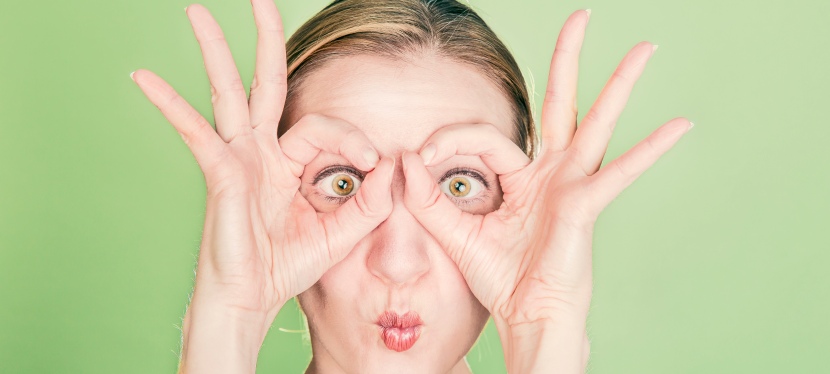"How old would you be if you didn't know how old you was?" - Satchel Paige
When someone asks you how old you are, you probably do not have to think about it for too long. The number just shoots out of your mouth. But is that how old you really feel? And is that your true age?? What’s in an age? Do you really identify yourself with that number?
What we think of when we shout out (or sometimes quietly whisper) that number is just our Chronological Age. Its simple mathematics. It is the number of times our planet has gone around the sun since our birth. But does that say anything about us at all? If you agree with the concept of life stages (or have gone through the blobs of six) then you might say, sure, a lot can be deduced by it. Unquestionably, there are repeating patterns and certain expectations at every age and stage. Nevertheless most probably there are parts of you that fit that pattern while other parts that don’t. So, why is that?
The reason is that age is not simply a number. Your true age, also sometimes referred to as functional age, is actually a complex combination of at least 4 different ages.
Mental Age
Your mental age is not just about how intelligent you are or about how much you know and what your IQ is. On the internet you can find umpteen intellegence tests that claim to measure your mental intelligence and sometimes even your age. Just after a few questions they stamp you with with an IQ number and mental age. More serious IQ tests claim to measure your knowledge, memory and speed in different areas and thus deterime how your performance deviates from the average performance of others at the same age. If your mental age is the same as your chronological age, you get an IQ score of 100.
But, mental age is much more than an IQ number. Most of these tests fail at measuring your emotional intelligence (EQ). Thus, a 4 year old may have the IQ of a 7 year old, but might have an emotional age of 3 years. You may be an adult, but might ‘behave’ like a teenager. On the other hand, life-changing events may have made you more mature for your age. Thus a teenage mother may have learned mental skills that make her stand apart from others her age. Death or sickness in the family very often lead to quick “mental aging”. As you can imagine, this kind of age is very difficult to measure and would require several sessions with psychologists to give it a number, if it is possible to do that at all.
Standard mental aging can be controlled and it is possible to even make a turn for better through regular physical exercise. As the famous saying goes “Mens sana in corpore sano“, a healthy mind in a healthy body.
Biological Age
Biological Age is assessed by measuring the vital functions of the physical body. It describes where you are relative to the maximum number of possible life-years. Simple biomarkers are obvious changes to physical appearance such as gray hair or wrinkled skin. Other more critical biomarkers are hidden, such as blood pressure, or the functioning of the body’s organs and cardiovascular or respiratory system. Some even make use of ‘loss of height’, that occurs due to loss of bone density as a measure of biological age (after 40 you can lose up to half an inch every 10 years).
Telomeres, which affect how quickly cells age and die by controlling how chromosome ends deteriorate or fuse with other chromosomes, play a huge role in biological aging. Telomere shortening is involved in all aspects of the aging process on a cellular level. The older you are the shorter is the total length of the telomeres and thus less protection for the chromosomes. This causes an increased affinity to diseases and neurodegenerative disorders, and possibly early death. But, with a healthy diet and regular exercise it is possible to maintain telomere length and thus influence the biological aging process.
Genes also play a role in biological aging. Some families have a long history of persons living long lives as compared to other families. Those with these ‘lucky genes’ seem to stay biologically fit and accomplish feats at even a very old age. One example is Fauja Singh who completed the marathon at the chronological age of 101. Medical tests done when he was 99 years old concluded that he had a biological age of a 40 year old. Have a look at him running in the video below:
Sociocultural Age
Sociocultural age refers to the set of roles you play in relation to other members of the society and culture you live in. Is the role ‘normal’ for your chronological age, i.e., are you acting according to the expectation of the culture or society you are in? Or are you breaking expectations and taking on roles typical of other stages (or blobs)?
Social roles can be seen as family or work related roles that are typically adopted at certain ages. Typical milestones that a society expects are schooling until 18, vocational studies in the 20s, parenthood in the 30s, career peak in the 40s, grand-parenthood in the 50s-60s, pensioner in the 60s-70s, wise elder in the 80s-90s, and so forth. You may or may not follow the pattern and that is exactly what determines your sociocultural age. For example, a teenage mother may take on the role of a 30 year old, a sportsman who retires at 30 would take on the role of a 65 year old and at 50 you might decide to go back to university and feel 20.
What social role you have may effect your other ages. Thus, late parenthood or late studies may keep you mentally young, whereas early parenthood may ‘age’ you mentally or biologically at a faster pace.
Perceived Age
You may know your chronological, mental, biological and sociocultural ages, but it is still possible that it all does not add up for you. You still do not feel your age! How old you perceive yourself to be, or the ‘felt-age’, reflects the perception of your own well-being related to your own expectations about aging. A positive self-perception of ones own health correlates with a higher level of well-being. Through social comparison, the older people get, the more they may consider themselves in better health than their same-aged peers, thus even though objective health may worsen with age, subjective health may remain relatively stable. This is often stated as the paradox of ageing.
90 year old when asked how it felt to be 90: "I wouldn't know, darling. I don't feel 90."

Even in younger years, you may feel older or younger than your chronological age depending on your physical, mental or social well-being. Confused, emerging adults, might be quite unsure about how old they feel. Some older adults might not feel at ease with people in their age group and prefer to hang out with younger, more energetic persons, which in turn effects their perception of themselves. Low energy levels or negative feelings about yourself may result in you feeling older on some days, whereas keeping physically and mentally active may result in positive feelings and thus a lower felt-age on other days.
Felt-age often goes hand in hand with how others perceive you. The estimated age of a person, or the ‘perceived age’ is often an integral part of clinical assessments of patients. In old-age, this perceived age is influenced negatively by what we see, e.g. wrinkled skin and low body mass index (BMI) and often positively for people with high social status or a cheerful personality. For younger children this perceived age is often used to assess if a child is ready to start schooling or not.
So, as you can see, age is not as simple as you may have imagined it to be. Maybe next time you ought to think twice before answering the question “how old are you?”.
Do you feel your age? If not, why not? Would be great to read about it in the comments below!



Very true! I am well-read and academic, so in terms of knowledge I feel very wise when folk come to me to ask me stuff. I must be about 500. Emotionally, I haven’t had many relationships, sometimes suffer from low self-esteem and worry about offending people. I must be 15. Physically I still get spots, eat sweets before dinner but can walk for hours, don’t get indigestion or hangovers, no aches or pains, good teeth. I must be 25.
I could go on…point proven haha!
LikeLiked by 1 person
Would be interesting to device a formula for calculating the true age :). One could give the different ages different weights (depending on your own priorities) and calculate one true number :).
LikeLiked by 1 person
I always laugh when my Mom and her sisters – all in their late ’80s – talk about ‘girls’ and ‘boys’ – since I know that they are their contemporaries!
LikeLiked by 1 person
Yes. It’s funny. We laughed a lot once when my mom was talking about a “young man” who turned out to be 60 years old 🙂
LikeLiked by 1 person
I like to say “you’re only as old as you feel”. I’ve been in my mid 30’s now for over a decade. 🙂
LikeLiked by 1 person
So what you are doing there is that you are convincing yourself that your felt-age is 30. The psych is a strong tool. I am sure it makes a big difference :). My father-in-law started counting his age backwards after 45. Now he is 13!
LikeLiked by 1 person
I often have to stop and think about it when asked how old I am. I think that’s a sign that I’m pretty old
LikeLiked by 1 person
Or maybe you don’t feel that old :).
LikeLiked by 1 person
I spent my entire 36th year thinking I was 37. Age is confusing!
LikeLiked by 1 person
I need to calculate my age anytime anyone asks. That started after around 35. Until then I always knew how old I was 🙂
LikeLike
Unfortunately, I feel older than my 52 years due to medical issues. 😦
LikeLiked by 1 person
Sorry to hear that. Hope things turn for the better!
LikeLike